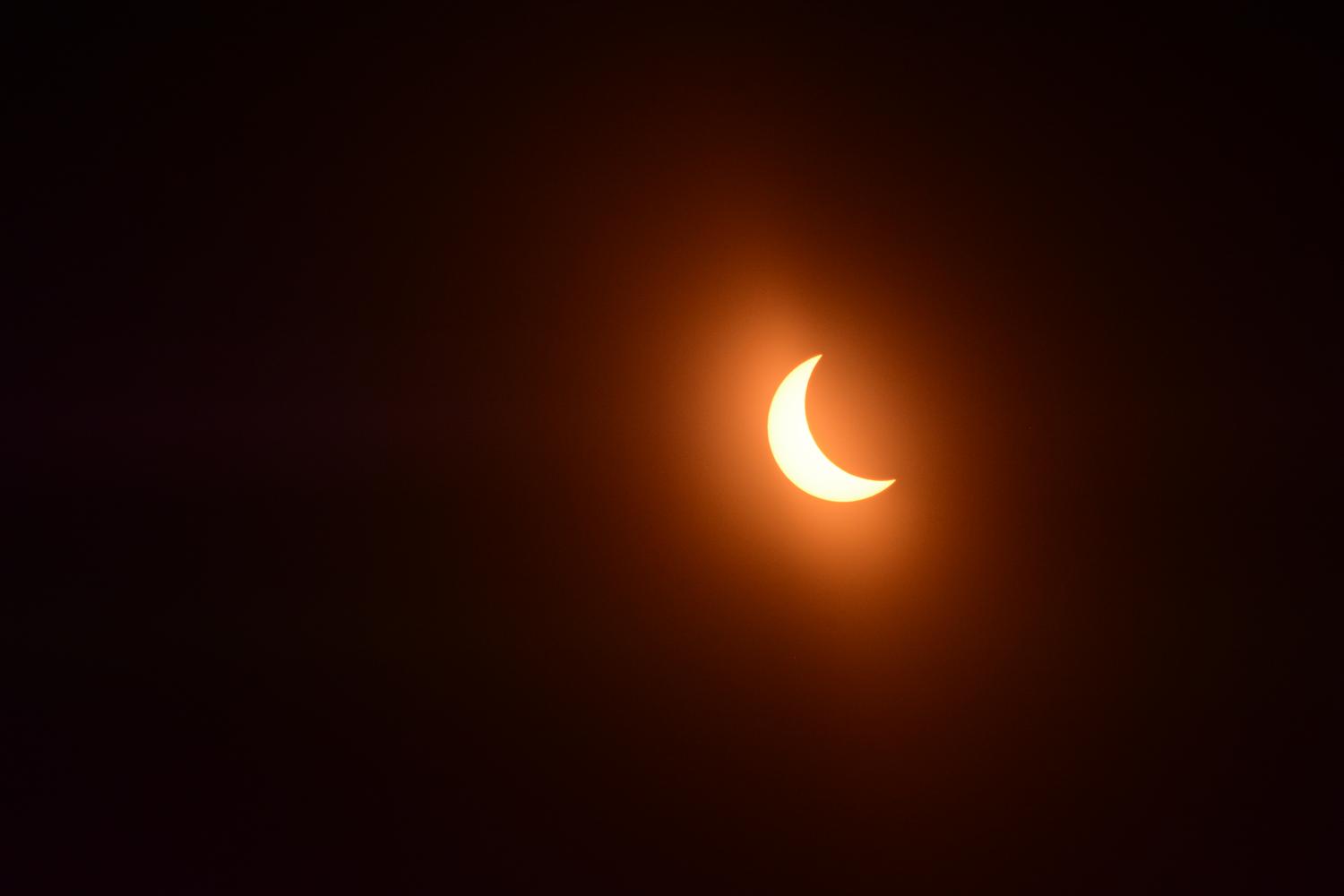NC’s first solar eclipse experience
After 99 years, the solar eclipse wowed people in the US. Major cities attracted hundreds of thousands of people for the special event.
August 24, 2017
The first solar eclipse in the United States since 1979 took place this past Monday, August 21. This occasion marked a significant first in all students’ lives and left staff and students in awe at the solar phenomena.
“I thought it was neat how all of the birds quit chirping and all of the bugs started going nuts,” freshman Ben Schuller said.
A mass frenzy broke out in the attendance office between classes due to the plethora of check outs. Although the solar experience created a whole new level of hysteria within the school, those who watched it enjoyed what they saw.
“It was extremely chaotic and exhausting. We had 654 checkouts we had to process that day, and it took the whole clerical team to make that happen,” attendance office receptionist Jessalyn Anglin said.
In addition to the 654 checkouts during school, over 1400 students did not report to school on Monday.
Those who did not check out either enjoyed viewing the eclipse from a live stream provided by Kennesaw Mountain High School, or experienced it by going outside through previous permission forms gathered by teachers with administrative approval. Around two in the afternoon, classes made their way to different locations, including the football field, bus port, and courtyard to observe the eclipse.
“It [the solar eclipse] helped me understand the relationship between the earth, sun, and moon better from experiencing it naturally rather than seeing it on a screen,” junior Litzy Lopez said.
Teachers provided their students with an assignment to go along with the viewing in order to relate the event back to the curriculum. However, staff members felt the process they went through to receive approval for their lesson plans took far too long and proved strenuous.
“With the understanding that student’s safety was the main reason we had to go through a multi-step process to get approved, I still think that it [the process] was possibly too much,” Human Anatomy teacher Julie Hopp said.
Overall, the solar eclipse proved stunning to staff and students and left people excited for the next North American solar eclipse, which scientists predict to happen on April 8, 2024.










Kat Shambaugh • Aug 27, 2017 at 6:23 PM
Gorgeous photo, Tara!
Bahaar Esfahani • Aug 24, 2017 at 5:41 PM
You’re really on top of these articles, Shannon! I’m loving it. It’s crazy the amount of people who left for the eclipse, too. About two-thirds of the school, huh? Anyway, I love seeing those kinds of statistics; it really puts it into perspective.
Shannon • Aug 25, 2017 at 12:20 PM
BAHAAR I MISS YOU SO MUCH THANK YOU!!!!